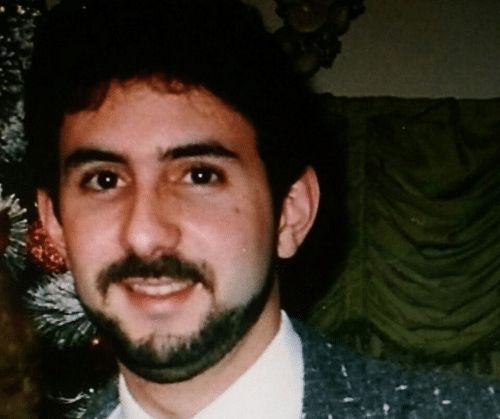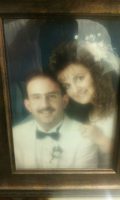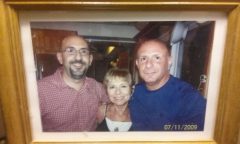Michael, Waldenström Macroglobulinemia Survivor
Michael, Waldenström Macroglobulinemia Survivor

I was extremely busy – I had a full-time job with a 6-month-old daughter and had started taking weekend college classes – when I noticed myself getting more fatigued than normal. I had blamed the exhaustion on my lifestyle and decided to see if it would pass until my wife Candace recommended, I see a family doctor.
A routine blood test showed that I was somewhat anemic, and I was referred to a hematologist and underwent several more tests. In March 2001, after six months of testing, I was diagnosed with a rare, incurable form of non-Hodgkin lymphoma called lymphoplasmacytic lymphoma, or Waldenstrom macroglobulinemia. I remember staring like a deer in the headlights wondering what the doctor was saying, but I was not willing to give up upon hearing those ugly words ‘you have cancer.’
I went through my first round of chemotherapy and was told I had achieved remission. After a year went by, in the Spring of 2003, my cancer started to progress, and I underwent another round of chemotherapy. However, my treatment was stopped after discovering I had an allergic reaction to the new drug.
“I remember staring like a deer in the headlights wondering what the doctor was saying, but I was not willing to give up upon hearing those ugly words ‘you have cancer.'”
Over the next four years, it was my doctor’s recommendation to stop treatment and I was placed on a regimen called “watch and wait” or “active surveillance.” During this time, I worked with my oncologist to maintain my disease but struggled with anemia and the challenge of working full time. I remember driving home each day from work feeling extreme exhaustion from anemia and felt as if I was sleeping walking through life with no energy.

With the support of my wife, I made it through this difficult period and started treatment again in the Spring of 2007 and after six months went into remission again. For the first time in years, I was feeling well and took the opportunity to visit close friends in Seattle with my family.
While in remission, my family and I received the devastating news that my wife was diagnosed with breast cancer. Believing our family could make it through her diagnosis together, we decided to remain optimistic and prepared for her cancer journey.
After another round of treatment and a short remission, I started to experience neuropathy. My neurologist conducted tests and discovered that cancer cells had spread into my spinal fluid. Without delay, my neurologist worked with my oncologist to treat me, and after numerous monthly treatments, my spinal fluid was cancer-free.
By the summer of 2015, my immune system was extremely weak, and a routine blood test showed that I had other abnormal cells in my blood. I was diagnosed with myelodysplastic syndrome (MDS), a rare blood disorder that can develop into acute myeloid leukemia. Due to the risks associated with MDS, my doctor suggested I undergo an allogeneic bone marrow transplant.

After searching the National Marrow Donor database, we were able to secure a donor – an 18-year-old man from Israel who was a 100 percent match. After 15 years of dealing with this disease, I finally received my transplant on July 7, 2016, and am now cancer-free. I feel as though I gave cancer the knockout punch it so deserved. I won! My experience inspired me to provide hope to others on their own cancer journey by sharing my story.
“Reflecting on my journey, I credit my wife and children for helping me to survive cancer.”
Reflecting on my journey, I credit my wife and children for helping me to survive cancer. My wife never stopped believing that I could be cured, and her courage and strength helped guide me and my family. Sadly, after a four-year journey battling aggressive breast cancer, Candace died in December 2012.
My family and I have been through many challenges, but I believe my faith in God, support from friends, and compassionate care from doctors and staff have helped us through it all. I am grateful every day for my second chance at life.
